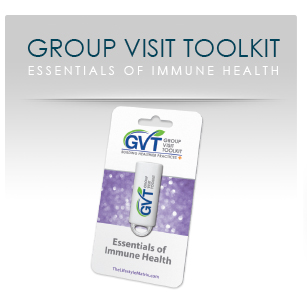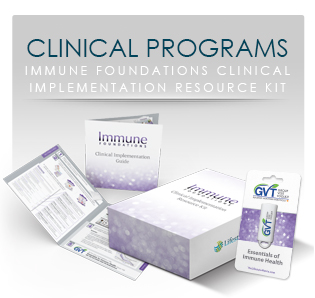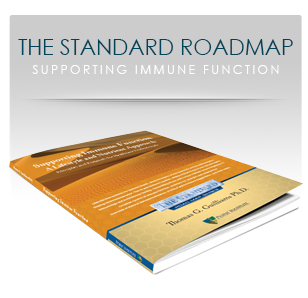Inflammation is the body’s natural, protective response to a harmful stimuli, be it a pathogen, an injury, a noxious compound, damaged tissue or cellular debris and more. A remarkably elegant and complex symphony of immune cells and associated compounds are released that quickly and powerfully contain the offending agent(s) and restore order. Our immune system is ever-active, constantly monitoring and clearing potential dangers with astonishing efficacy.
Chronic inflammation develops when the cascade of assaults is ongoing. Chronic inflammation underlies all complex, chronic disease, including cancer, diabetes and heart disease to autoimmunity and allergic disease. The antecedent and triggering factors for the development of chronic inflammation are widespread and variable.
When we’re discussing conditions associated with immune dysfunction we’re generally thinking about autoimmunity and allergic disease, although a foundational functional approach to assessment and treatment of these conditions will have far-reaching benefit for any condition associated with chronic inflammation.
Dr. Thomas G. Guilliams, from Supporting Immune Function: A Lifestyle and Nutrient Approach outlines ten principles to consider that comprise a highly useful “road map” for thinking through underlying causes contributing to immune dysfunction. Imbalances in any of these areas will contribute to chronic inflammation and immune dysfunction setting the stage for the development of disease.
- Maintaining and Protecting Barrier Function
- Creating a Commensal-Friendly Environment
- Maintaining Appropriate Hygiene Practices
- Avoiding Antigens and Allergens
- Building Micronutrient and Antioxidant Reserve
- Maintaining and Building Cellular (Mitochondrial) Energy
- Maintaining Adequate Detoxification Capacity
- Diminishing Stress and Cortisol-Induced Immune Suppression
- Reduce Chronic Inflammatory Triggers/Mediators
- Using Immune-Modulating Agents to Create Balance and Strengthen Immune Function
A careful history is an essential first step in the assessment of immune dysfunction. Look for contributing factors—antecedents, triggers and mediators—throughout the course of an individual’s life, including pregnancy through adulthood. Additionally, not mentioned above, is the assessment of genetic preconception and family history. In my practice, I’ve structured my patient intake to include room for evaluation from preconception to neonatal exposures into adulthood, moving through each decade of life. The ten road map principles can be grouped into four primary areas to help focus assessment. These areas are:
- Gastrointestinal health
- History of gastrointestinal health and function
- Exposures to antigens and allergens
- Medication exposures, especially microbiome and barrier disrupters such as antibiotics, steroids and NSAIDs.
- Excessive hygiene habits
- Stress or HPA imbalance
- Heightened stress or history of trauma at any stage of life is a powerful promotor of immune imbalance through a variety of mechanisms.
- Review stress-promoting habits
- Healthy stress-reducing habits
- Thyroid function
- Sex hormones
- Environment and toxin exposures
- Health of mother during pregnancy (exposures to toxins, smoke, vaccines, antibiotics, amalgams, fish consumption)
- Current and past toxin exposures, including fish, plastics, amalgams, work environment
- Home environment: Mold? Lead pain? Urban, polluted area? Agriculture? Water quality? EMF exposures?
- History of alcohol, smoking or second hand smoke exposures
- Diet and lifestyle
- Diet, from preconception through adulthood is one of the most powerful promotors or inhibitors of inflammation. Was a standard American diet consumed? Fast foods? Sugary foods? Nutrient-rich or poor foods? Organic, clean-sourced foods?
- Rushed eating (no rest and digest)
- History of eating disorder?
- Restricted diets, including veganism or macrobiotic
- Exercise habits
- Outdoors
- Sleep patterns
- Meditation and Spiritual practices
With a careful background, understanding the etiology of the presenting complaints becomes clear.
Physical exam should include looking for signs of inflammation as directed by history: Is there any swelling, edema, joint inflammation, muscle pain and tenderness, angioedema, rosacea, rashes/eczema, hives, throat injection, sinus and nasal congestion or irritation, oral hygiene.
Basic inflammatory labs include hsCRP and ESR. Autoantibodies should be assessed based on history and clinical presentation. In my practice, I look at thyroid antibodies and ANA in most patients. Early elevation of autoantibodies may be predictive of future autoimmunity, regardless of current symptomatology. Allergy panels should include IgE inhalant and food allergens; histamine and tryptase can also be checked. IgG food sensitivity testing can be useful. Hormone testing to be considered includes 4-point cortisol with DHEA, sex hormones and thyroid function. Consider comprehensive stool testing, nutrient evaluation and testing for toxins.
Treatment: An initial plan should include addressing the four areas:
- Gastrointestinal health
- Probiotics and/or botanical antimicrobials
- Stress or HPA imbalance
- Stress reduction plan (yoga, meditation heart rate variability)
- Adrenal/HPA support, including supplements and lifestyle interventions
- Environment and toxin exposures
- Clean living guidelines
- Detox support
- Diet and lifestyle
- Therapeutic diet (e.g., elimination diet, Paleo, FODMAP)
- Review healthy eating habits (rest and digest)
- Exercise program
 | About Dr. Kara Fitzgerald Dr. Fitzgerald received her doctorate of naturopathic medicine from National College of Natural Medicine in Portland, Oregon. She completed the first CNME-accredited post-doctorate position in nutritional biochemistry and laboratory science at Metametrix (now Genova) Clinical Laboratory under the direction of Richard Lord, Ph.D. Her residency was completed at Progressive Medical Center, a large, integrative medical practice in Atlanta, Georgia. Dr. Fitzgerald is lead author and editor of Case Studies in Integrative and Functional Medicine, a contributing author to Laboratory Evaluations for Integrative and Functional Medicine and the Institute for Functional Medicine’s updated Textbook for Functional Medicine. She has been published in numerous peer-reviewed journals. Dr. Fitzgerald is on faculty at the Institute for Functional Medicine, and is an Institute for Functional Medicine Certified Practitioner. She was formerly on faculty at University of Bridgeport in the School of Human Nutrition and the School of Naturopathic Medicine. She is a clinician researcher for The Institute for Therapeutic Discovery. Dr. Fitzgerald regularly lectures internationally for several organizations and is in private practice in Sandy Hook, Connecticut. Learn More About Dr. Fitzgerald at www.drkarafitzgerald.com. | |
 |  |  |
| Learn More | Learn More | Learn More |




